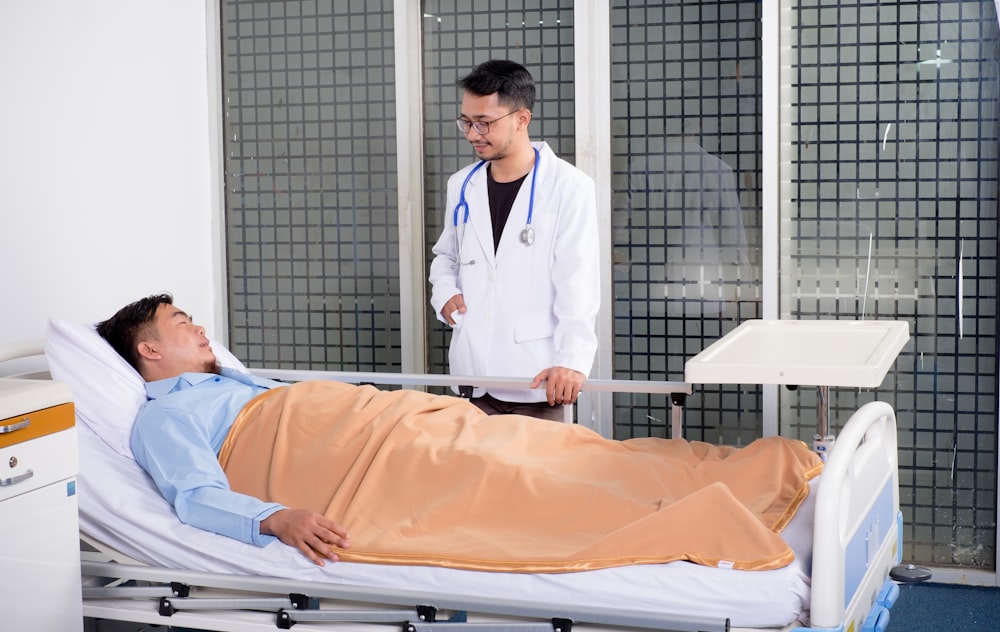目次
脳卒中症例がリハビリテーション病院で最も長い時間を一緒に過ごしているのは理学療法士
理学療法士・作業療法士であればクライアントからさまざまな悩みを打ち明けられることって多いと思います.
われわれ理学療法士・作業療法士って担当制でしかもマンツーマンで一定の時間をクライアントと過ごすのでクライアントからもさまざまな悩みを聞いたり,訴えを聞いたりってことって多いですよね.
今回はリハビリテーション病院で脳卒中症例が誰と過ごす時間が長いのかを調査した研究論文をご紹介させていただきます.
結論から申し上げますと脳卒中症例がリハビリテーション病院で最も長い時間を一緒に過ごしているのは理学療法士だったわけですが,これってすごいことですよね.

今回ご紹介する論文
J Rehabil Med. 2013 Nov;45(10):997-1003. doi: 10.2340/16501977-1214.
A mapping study on physical activity in stroke rehabilitation: establishing the baseline
Monica Skarin 1, Anna Sjöholm, Åsa Lundgren Nilsson, Michael Nilsson, Julie Bernhardt, Thomas Lindén
Affiliations expand
PMID: 24150662 DOI: 10.2340/16501977-1214
今回ご紹介する論文は2013年に掲載された少し古い論文です.
研究の目的
Objective: To establish physical activity level, environment and social interaction in routine stroke rehabilitation practice.
この研究では脳卒中リハビリテーション実践における身体活動レベル,環境,社会的相互作用を確立することを目的としております.
研究デザイン
Design: Prospective observational study using behavioural mapping.
研究デザインは行動マッピングを用いた前向き観察研究となっております.
研究の方法
Methods: Patients at 4 hospital stroke rehabilitation units in Sweden at least 7 days post-stroke were observed over 1 week-day at 10 min intervals between 08.00 h and 17.00 h. At each observation, physical activity, location and people present were ascertained.
スウェーデンの4つの病院の脳卒中リハビリテーション病棟で,脳卒中後7日以上経過したクライアントを対象として,1週間の1日,8時から17時までの間に10分間隔で観察し,各観察で身体活動,場所,同席者を把握しております.
研究の結果
Results: Patients (n = 104) had a mean age of 70.3 (standard deviation (SD) 14.4) years. Median time since stroke was 19 (range 7-142) days. Patients were alone for 52% of the day, during this time 7% was spent in standing/walking activities. While with a physiotherapist patients were standing/walking for 43% of the time. Using median regression it was found that the median percentage of time spent in standing/walking was associated with gait independence and age. Gait independence increased the median percentage of time spent in standing/walking by 16.5% (95% confidence interval (CI) 12.1-20.9, p < 0.001), while an increase of 1 year of age reduced the median percentage of time spent in standing/walking by 0.16% (95% CI -0.31 to -0.01, p < 0.05).
対象となった脳卒中症例(n=104)の平均年齢は70.3歳でありました.
脳卒中発症からの中央値は19日(範囲7~142日)でありました.
クライアントは1日のうち52%を一人で過ごしており,そのうち7%は立位や歩行に費やされておりました.
理学療法士と一緒にいる場合,クライアントは43%の時間を立位や歩行で費やしておりました.
回帰分析を用いて分析した結果,立位・歩行に費やされた時間の中央値の割合は,歩行の自立度および年齢と関連していることが明らかとなりました.
歩行自立度は立位・歩行時間の中央値を16.5%増加させ,年齢が1歳増えるごとに立位・歩行時間の中央値が0.16%減少するといった結果でありました.


研究の結論
Conclusion: Patients had low levels of physical activity and social interaction. This study suggests that there is a huge potential to increase patients’ activity level and augment social interaction above current levels.
入院中の脳卒中症例は身体活動と社会的交流のレベルが低いことが明らかとなりました.
この研究からもクライアントの活動レベルを高め,社会的交流を増やす必要性が示唆されます.
今回はリハビリテーション病院で脳卒中症例が誰と過ごす時間が長いのかを調査した研究論文をご紹介させていただきました.
理学療法士・作業療法士・言語聴覚士と過ごす時間が最も長いというのは驚きですね.
脳卒中症例にとってわれわれリハビリテーション職種の関わり方が改めて重要なのだなと認識させられる結果ではないでしょうか?







コメント